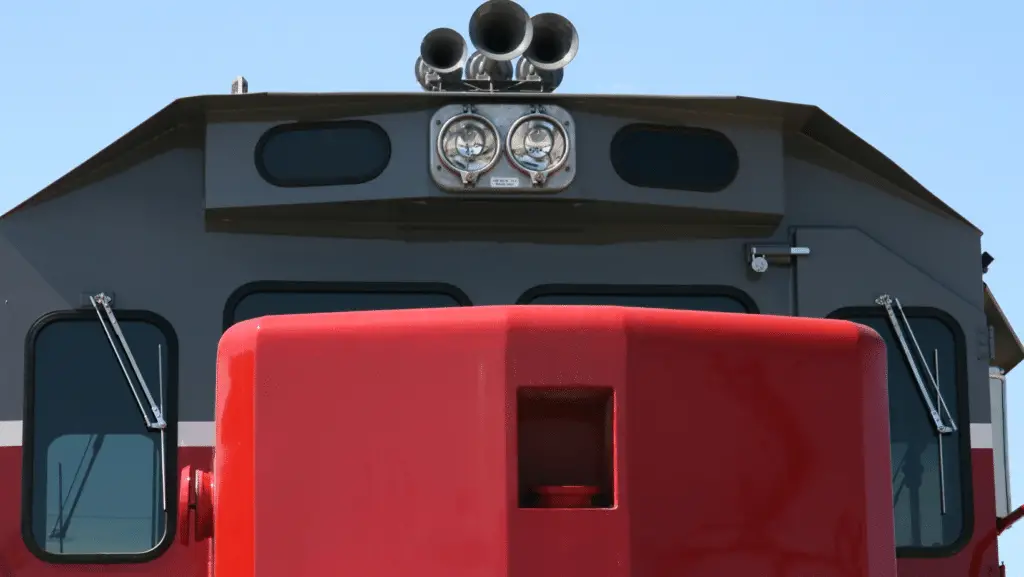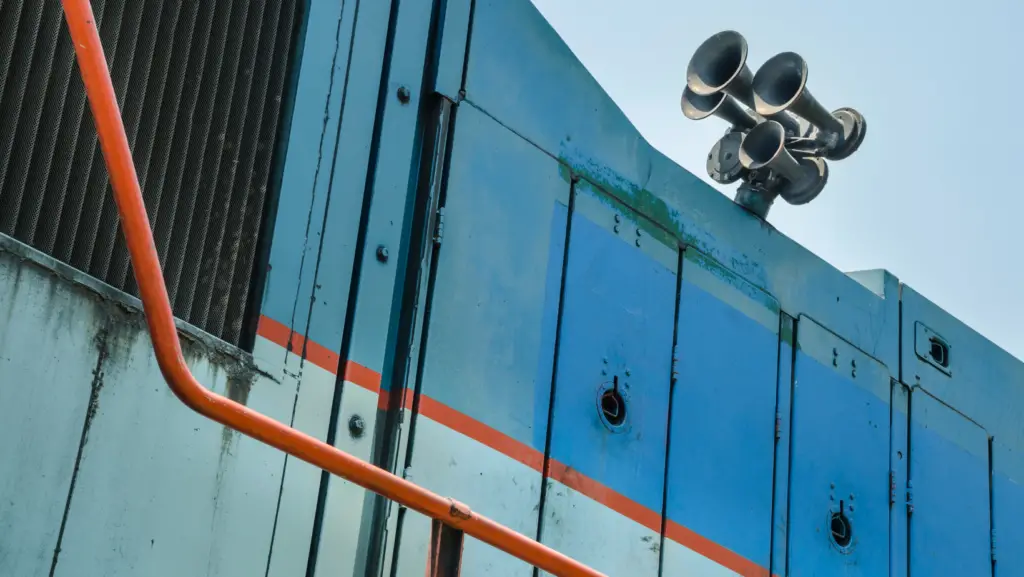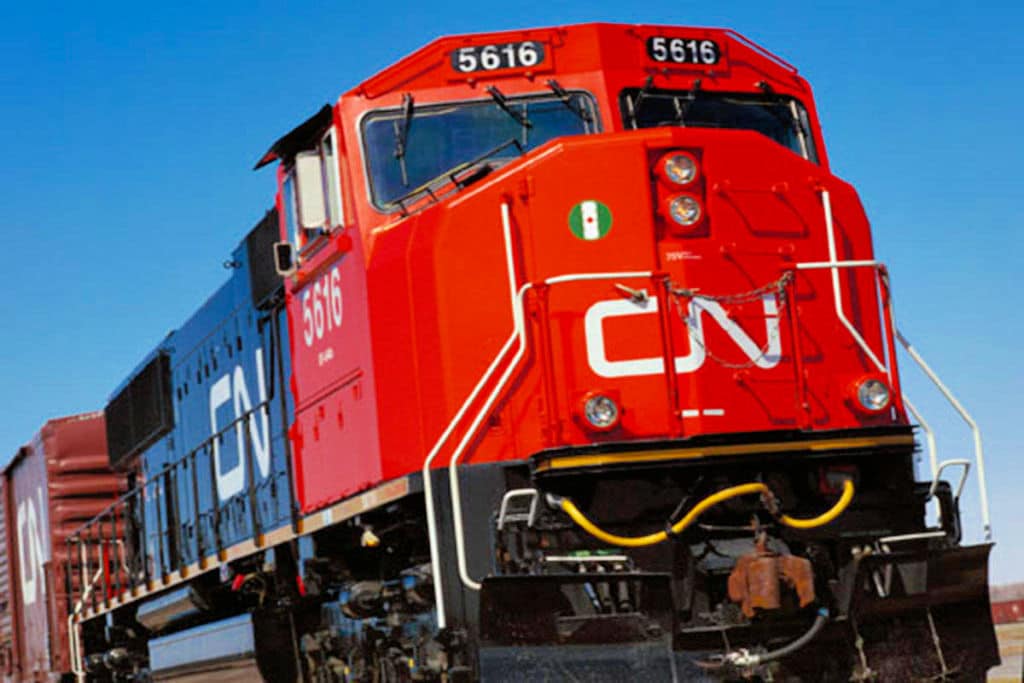Why do trains honk? Honking is a necessary safety measure for many reasons. It can be used to warn people of an approaching train, signal other trains & indicate that the brakes are being applied. Trains also honk to announce the arrival or departure at the station or to warn when passing through.

Honking is also important in emergencies such as when a train is about to collide with another object. In such cases, the train horn can warn people in the area and give them time to move out of the way. In this article, we discuss all the possible reasons why trains honk and sound their huge horns.
Trains have been required to honk their horns at public crossings since the Grade Crossing Protection Act was passed in 1868. The law was created after horrific accidents involving trains and horse-drawn carriages. There were no warning lights or gates at crossings in those days, so the only way to alert people to an approaching train was to sound a horn.
Why Does the Train Conductor Sound the Horn?
The simple answer is: because it’s the law, but there’s more to it than that. The horn sounded like a warning to anyone who might be on or near the tracks. It’s also a way to let people know that the train is coming, especially if they can’t see it.
In an area with high noise levels, like near an airport, the horn can be a way to get people’s attention. Some trains have horns, and others don’t…
Not all trains are required to have horns. But most freight and passenger trains do have them. Some newer locomotives have a “quiet zone” feature that allows the conductor to turn off the horn when approaching crossings in quiet areas.
What are the Various Sounds of a Passenger Train’s Horn?
A passenger train’s horn can make three main types of sounds: long, short, and continuous.
Long Honk
The long sound is used as a warning at public crossings.
Short Honk
The short honk is used to warn private crossings and when the train is entering or leaving a yard.
Continuous Honk
The continuous sound is used when the train is passing through a tunnel.
What is the Difference Between a Train Horn and a Locomotive Horn?
A train horn and a locomotive horn are essentially the same, it just comes back to people calling a locomotive a train, which is common.
Other Reasons Why Trains Honk Their Horns.

1. To warn people of an approaching train
Most people are familiar with a train horn, but not everyone knows why trains honk. The primary purpose of a train horn is to warn people of an oncoming train, but it can also signal other passenger or freight trains or indicate that the air brakes are being applied. Train horns are required by law in many countries, and they are typically sounded several times before the train reaches a crossing.
This gives people enough time to move out of the way and avoid being struck by the train. Train horns can also be used in emergencies, such as when someone is on the tracks and needs to be warned of an approaching train. In these cases, the train horn can mean the difference between life and death.
2. To signal other trains
In addition, to warning people of an approaching train, horns are also used to signal other passing freight trains. For example, if two trains are on the same track and headed in the same direction, the lead train will often sound its horn to let the following train know that it is clear to pass. This is done to avoid potential collisions.
3. To indicate that the brakes are being applied
Another reason trains honk their horns is to indicate that the brakes are being applied. This can be helpful in situations where the train is traveling at high speeds and needs to stop quickly. The conductor can let roadway workers know that the train is slowing down by sounding the locomotive air horn. Honk! Honk!
4. To announce the arrival or departure of a train
In some cases, horns are also used to announce the arrival or departure. For example, when a train arrives at a train station, the conductor may sound the locomotive horns to let people know it is time to board. Similarly, when a train is leaving a station, the horn may sound like a warning to people on the platform.
5. To warn everyone that there is an obstruction ahead and that the train is slowing
Another reason train horn blasts is to alert of an obstruction ahead and that the train is slowing down.
Why do train horns face backward?
There are a few reasons why train horns face backward. One reason is so that the train drivers can hear them better. Another reason is that the horn will be louder and more effective when used. And finally, facing the horn backward ensures that any potential debris blows past the horn, instead of into it!
How far can a train horn be heard?
The answer to this question depends on many factors, including the type of horn, the type of train, the weather conditions, and the distance between the train and the listener. In general, however, a train horn can be heard up to a mile away in an urban environment, but much further away in the countryside, especially in the mountains!

Why Do Trains Honk – Conclusion
Trains honk for various reasons, some of which include warning people of an approaching train, signaling other trains, indicating that the brakes are being applied, announcing the arrival or departure of a train, and alerting of an obstruction on the tracks.
While each country has its own set of laws dictating when and how horns must be used, horns are generally sounded several times before a train reaches a crossing. This gives people enough time to move out of the way and step back from the tracks.
In emergencies, such as when someone is on the tracks and needs to be warned of an approaching train, the horn can mean the difference between life and death. Train horns are an essential part of train safety, and they play a vital role in preventing accidents.
Related Articles
How Do Maglev Trains Work? Warning, They’re FAST!
How Does a Train Work? Actually.

